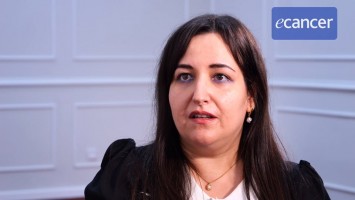Tomorrow I will present this subject: what are the specific problems which are encountered when you treat patients in these areas which could be called tropical areas, that means also in general less developed or intermediately developed countries? Therefore there are two aspects, the first is that in French Guyana I have studied the introduction of screening of frailties, that means the G8, and we have observed several facts. First, you must train a registered nurse to do that in the best way it’s possible but, in fact, in our example we have 50 patients who were evaluated and 46 had a G8 score of 14 or less. That means that, in fact, it is not a discriminating tool and you must perform a simplified geriatric evaluation in any case. There is another aspect: the reason is that in the G8 you ask the question, ‘How do you consider your health status when compared to other people of your age?’ and this doesn’t mean anything in some populations. May I explain what I mean?
In French Guyana you have a very heterogeneous population because French metropolitan people are the minority. You have there populations with a different view of health, of disease or illness. This population may be animist, they could be organised as a matrilineal system, they could consider health as strength and illness as some disturbance. Generally illness is considered due to somebody who cast a spell and they ask the traditional doctor. Traditional doctors realise a divinatory diagnosis, so treatments are different, they use plants, they use different rites, they use baths and therefore their view of the disease is completely different. This is true in French Guyana but this is true also in immigrants in Western countries, either in West Europe or in North America, however it is true also in many countries in Africa and Asia. Therefore this aspect, this cultural aspect, is important.
In my experience you need to evaluate the geriatric assessment through comorbidity study, through dependence, through cultural aspects also and the use of screening tools is quite unuseful.
The second aspect of the presentation is what are the facts in less developed countries. There are two public health aspects, the first is that however this population is increasing but the elderly people population is increasing by far more than in Western countries. The second fact is that health expenditure is by far smaller when compared to Western countries. How to proceed? There are different ideas which have developed. The first is a joint venture between northern centres in Western countries and southern centres, the objective being to train doctors maybe in geriatric oncology, to prepare decision trees which are aimed to allow the use of less expensive treatment but higher activity to have a good rationalisation of the expenses. In this way the third idea is important to develop centres of excellence in these countries, maybe one centre of excellence, and through this centre other doctors and nurses are trained and can take in charge the patients.
There is another aspect which is the therapeutic aspect and we must remember that in less developed countries the most active curative treatment remains surgery. Then the most active palliative treatment and cheaper treatment is radiotherapy. Finally the palliative care, and mainly pain treatment, may be the most important aspect and in this way the fourth treatment, which is the medical treatment and generally somewhat expensive. There are at this moment programmes which are organised by institutions, by industry, to allow access to the most active medical treatment in these countries.
We are just at the beginning of the development of geriatric oncology in less developed countries but really it’s an important problem. It is possible to develop some activities or some management which could help a lot, a big proportion, of these patients.








